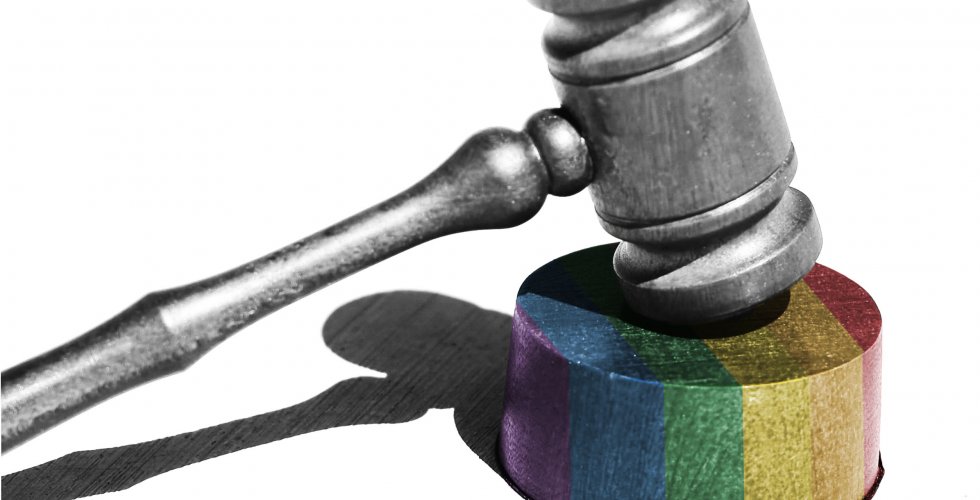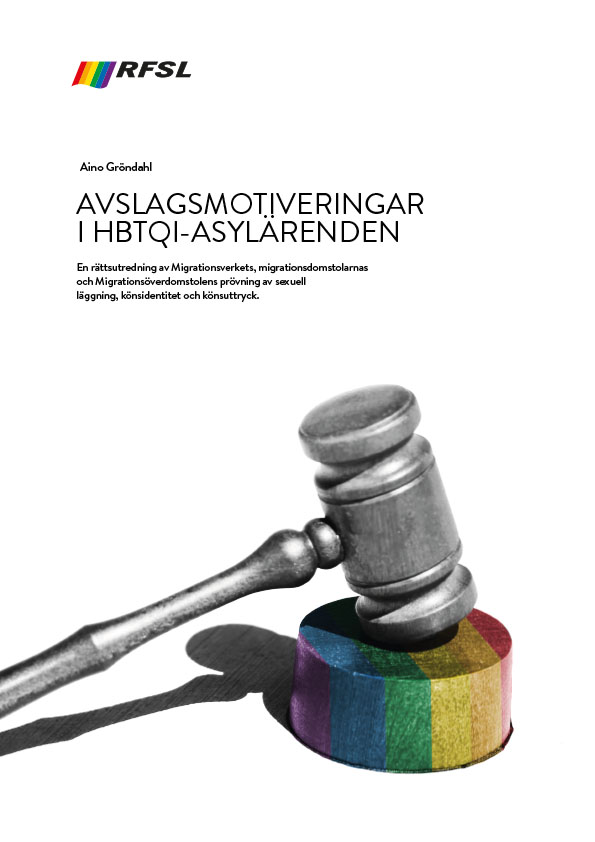
LGBTQI asylum-seekers are refused on unlawful grounds
A new judicial investigation from RFSL shows that LGBTQI asylum cases are refused on unlawful grounds. Asylum seekers are expected to conceal their LGBTQI identity, trans people’s asylum claims are missed and the legal uncertainty is wide-spread in LGBTQI asylum cases.
In a judicial investigation published by RFSL (PDF opens in a new window) asylum lawyer Aino Gröndahl has examined over 2 000 individual decisions and verdicts made by the Migration Agency and the migration courts between 2012-2020.
The migration authorities have a number of requirements when an applicant is to prove and make their asylum claim plausible. Asylum seekers are expected to have gone through an inner process leading up to realisation about their sexual orientation, gender identity or gender expression. They are expected to have felt, or at least reflected upon, feelings such as a sense of being different, stigma and shame. The more tabooed LGBTQI is in the country of origin, the more the applicant is expected to be able to talk about it. The requirements are illogical and contravene the Swedish Aliens Act. If a person is concluded to have taken “too big a risk” they are deemed non-credible and are refused asylum. This is based on the presupposition that LGBTQI people don’t take risks.

RFSL’s asylum lawyer Aino Gröndahl is behind the judicial investigation. She has worked as an asylum lawyer for nine years, specialising in LGBTQI cases.
The requirements are based on the erroneous and stereotypical notion that LGBTQI people share certain universally common experiences that can be investigated and assessed. LGBTQI people eligible for protection who don’t share or can describe these experiences are deemed non-credible, are refused asylum and are deported. The requirements contravene UNHCR’s guidelines, the European Court of Justice, the legislative history of the Aliens Act and the Migration Agency’s own legal standpoint.
Even though it has been forbidden for 15 years in Swedish law and 10 years in international law to demand that an asylum-seeker should hide their LGBTQI identity, discretion requirements are made in 53 % of cases from countries such as Iraq, Kenya, Ethiopia, and Lebanon, where LGBTQI people are punished by anything from fines to torture-like “tests” and death. Trans people’s asylum claims are wrongly investigated or not at all: gender identity is investigated as homosexual or “transsexual” orientation. Gender expression is misinterpreted as sexual orientation or “a character trait”. That leads to erroneous refusals and deportations of trans people to countries where they may be punished by death.
The legal uncertainty is widespread in LGBTQI asylum cases: basic administrative principles about homogeneity and predictability aren’t fulfilled. Identical stories, circumstances and country reports are judged differently. Some are granted asylum, while others in need of protection are refused and are deported to persecution. Late disclosure of LGBTQI asylum claims are often deemed non-credible and non-reliable and 91 % are denied asylum in a new trial.

– LGBTQI people eligible for protection shouldn’t have to have the right experiences to receive protection. RFSL hopes that the migration authorities take the recommendations in the investigation on board, so that LGBTQI refugees in need of protection are granted asylum, says Deidre Palacios, president of RFSL.

